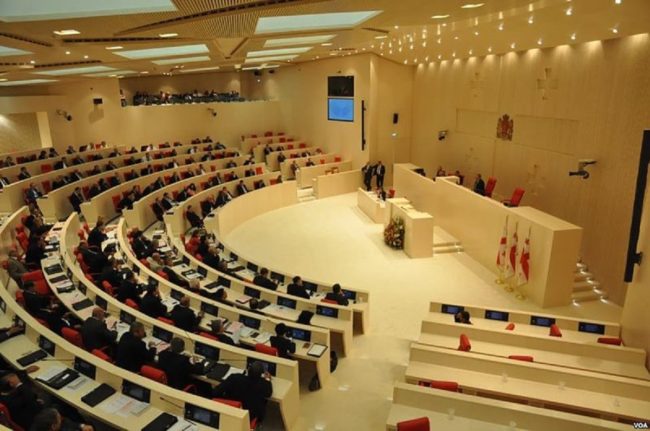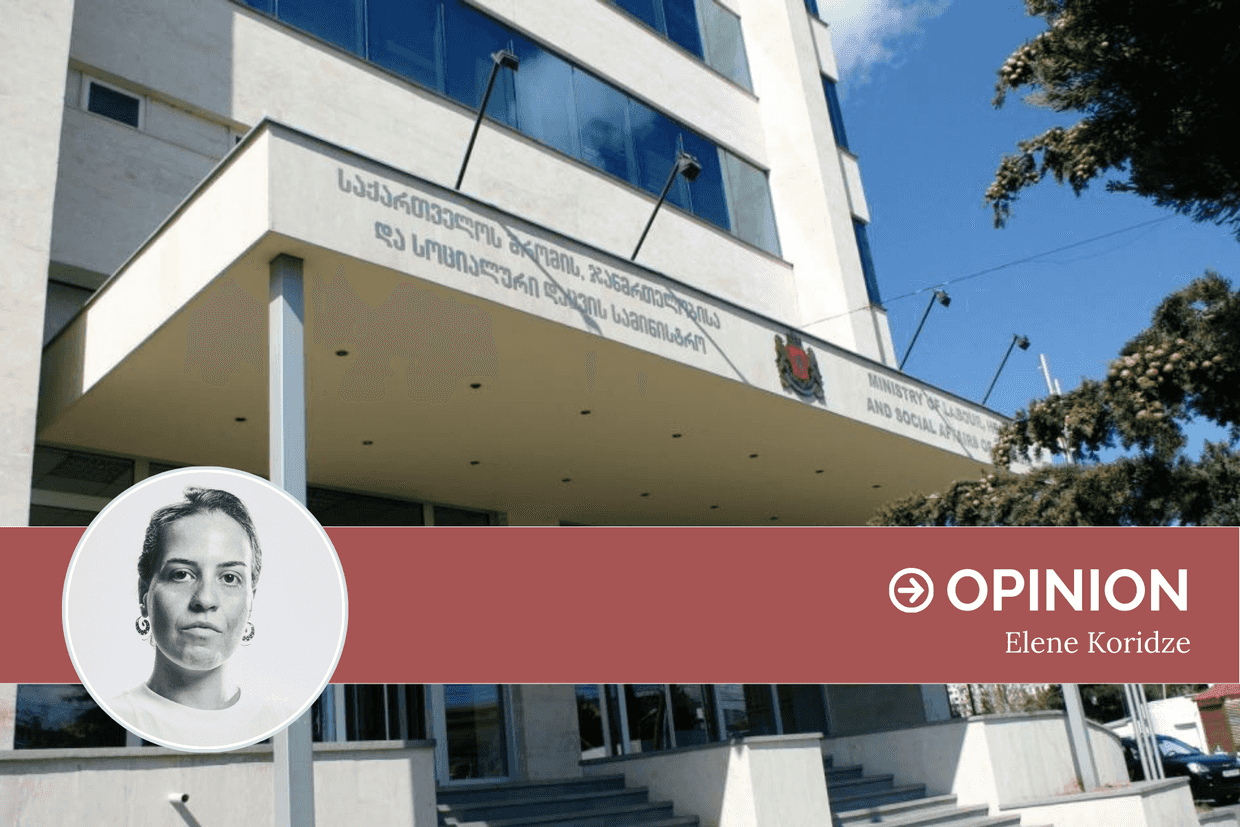

 Georgia’s Parliament plans to discuss determining a minimum wage in the 2018 autumn parliamentary session. The Human Rights and Civil Integration Committee’s 2017–2018 Action Plan pledges to draft a labour legislation bill to determine a minimum wage, which is absent from the current Labour Code.
Georgia’s Parliament plans to discuss determining a minimum wage in the 2018 autumn parliamentary session. The Human Rights and Civil Integration Committee’s 2017–2018 Action Plan pledges to draft a labour legislation bill to determine a minimum wage, which is absent from the current Labour Code.
The document also promises that parliament will focus on labour issues such as labour safety, and the Labour Code’s compliance with the UN’s Sustainable Development Goals and European legislation.
According to March 2016 data from the Revenue Service, 25,000 people have salaries lower than ₾100 ($40) per month; 63,000 lower than the national living-wage, and 130,000 people lower than the family living-wage. According to the National Statistics office, 21% of the population live in what they define as absolute poverty in 2016.
As of July 2017, the National Statistics Office defines the living-wage of a working age man as ₾167 ($68) per month.
‘This implies that employees in Georgia are unable to satisfy their minimal living requirements with the wages they have’, says a study published by the Public Defender’s office in 2016.
Georgia’s Labour Code does not set a minimum wage, however a 1999 presidential decree set a minimum salary of ₾20 ($8) per month, while a 2005 decree set ₾135 ($55) per month as the minimum salary for government employees.
‘In both cases, the minimum salary is below the living-wage […] which can in no way be considered a fair and sufficient salary’, the report says.
The committee Action Plan pledges to consider the SDGs on labour rights which requires governments to ‘protect labour rights and promote safe and secure working environments of all workers, including migrant workers, particularly women migrants, and those in precarious employment’.
The committee will also consider recommendations by the UN’s Committee on Economic, Social and Cultural Rights, which calls for strengthening efforts to provide fair working conditions including a minimum wage compliant with the living wage.
Labour safety
Low salaries are not the only issue labour rights activists have been outspoken about in recent years. In 2015–2016, 776 people were injured and 270 died in work-related accidents, according to data from the Interior Ministry published by the Human Rights Education and Monitoring Centre (EMC), a Tbilisi-based rights group.
[Read on OC Media: Fatal workplace accidents show ‘need for labour inspection reform’]
In April 2015, the Labour Inspection Department was created to monitor workplace health and safety, but the department has proved to be ineffective, according to EMC, as the number of occupational fatalities rose instead of going down.
One of the reasons cited for its inefficiency is that recommendations made by the department to companies are not compulsory.
In June, a new law on Labour Safety passed its first hearing in Parliament despite criticism from local rights groups. EMC criticised the bill as being ‘incapable of adequately responding to the needs of labour safety and health supervision’.
The bill came under criticism for several reasons, including its narrow scope — concerning only hazardous work; the inability to carry out inspections without a court order; and low penalties of between ₾50–₾2,000 ($20–$810).
On 27 July, a demonstration was held outside the Government Chancellery building to demand a more efficient labour inspection mechanism.
The Georgian Trade Union Confederation demanded at the rally a ‘real labour inspection mechanism, which will control not only the construction sector’.
‘In light of constant workplace fatalities, the Georgian Parliament continues to calmly discuss a labour safety bill… There is a death toll of 433 in workplaces over the last 10 years, and this will continue if authorities do not intervene’, said a statement from the confederation.
The Human Rights and Civil Integration Committee’s 2017–2018 Action Plan promises to hold a hearing on labour safety and employees rights. It pledges to discuss a new bill on labour safety and healthcare as early as spring. According to the document, the bill will aim to bring Georgia’s Labour Code closer to EU legislation.









